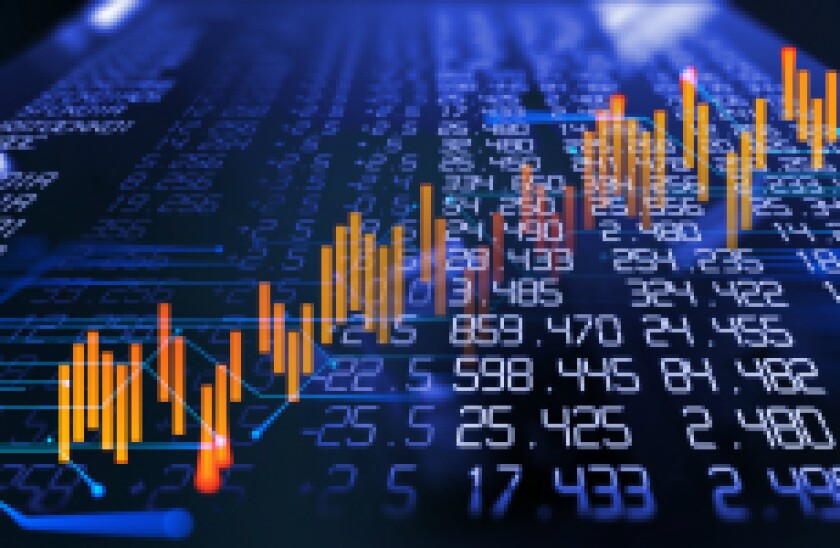Research from Bank of America Merrill Lynch, published on Monday, revealed that by week four of earnings season 87% of the S&P 500 had reported their first quarter earnings. Across the index, earnings are 5% above analyst expectations and 4% above BAML’s forecast.
All 11 sectors on the index outperformed, with technology, financials and industrials particularly strong. While tax reform was positive for balance sheets, pre-tax figures suggest it wasn't the only reason for decent earnings.
But despite this strong set of expectations-busting results, the index is still down 7% from its January peak.
A senior investor speaking at a London dinner last month told the room that it was his view, and that of many other investors, that US, and global, markets peaked in January and that both equities and bonds are likely embarking on a period of bearish sentiment.
A second BAML note written on May 6 by its chief investment strategist Michael Hartnett, points to why some investors might feel the market has peaked.
If the S&P 500 did extend its bull run to August 22, it would be the longest of all time.
In July 2019 economic expansion in the US will have had its longest run since the American Civil War and in the US, UK, Germany, and Japan, unemployment rates are at multi-decade lows.
Global equity returns year to date are -0.4% according to Hartnett’s note, while bonds are at -0.7%.
The major tech stocks designated by the FAANG (Facebook, Apple, Amazon, Netflix and Google) acronym make up more than 10% of the S&P 500, and their strong performance has been the driving force behind the US equity bull run of the last few years.
“If you think about the US market now it’s basically tech,” said an equity syndicate banker. “Those FAANG and tech stocks are mega-caps and they have large capital drawing needs, these are huge numbers and people are becoming relatively wary about their drawing needs."
Europe to benefit
Europe’s main indices have fared a little better this year. Both the FTSE and the DAX are both close to January's heights again.
The banker said secondary European equity markets have benefited from inflows from US funds. The M&A boom in Europe this year has also meant that many portfolios have been boosted by positive growth.
UK retailer Sainsbury’s £10bn merger with Asda, is just one example of the kind of deal that can bolster equity prices. This then improves investor returns and a number of strategists are now advising funds to filter into Europe.
But this hasn’t particularly helped primary European equity issuance, which remains down almost 35% year to date from 2017, according to Dealogic figures.
IPO buyers in particular have said that market volatility is keeping them from committing too much to new deals, unless they are given a substantial discount, with no guarantee that the price will rise after listing.
Investors seem comfortable enough with Europe for now to buy established names, but it is late enough in the cycle to be cautious about jumping into new companies with a less established track record.
This US data in particular suggests that equity investors identified January as the top of the bull market. Global economic growth through 2018 might prove them wrong, but there is now identifiable scepticism about the good times continuing for much longer.
Given many major street banks were predicting at least one or two more bull years at the end of last year, it marks a big shift in the attitude to global equities from those buying them.

